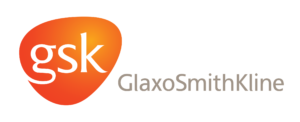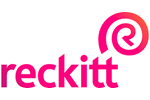Consumer goods companies are the tortoises of the equity market. Without the flashy performance of hare-like growth or cyclical companies, they are nevertheless steady and dependable. In economic downturns people still need to buy deodorant, detergent and toothpaste. But even tortoises move at different speeds, and as the global economy normalises, we are seeing a growing focus from these companies on ‘portfolio optimisation’.
Before the pandemic, three of the UK’s largest consumer goods companies, responsible for some of the best-known brands found in kitchens, bedrooms and bathrooms globally, were already taking long, hard looks at themselves. Their relatively new CEOs were planning significant strategic changes to try to unlock potential and put them on a par with their global peers.
In February 2020, Laxman Narasimhan, CEO of Reckitt, maker of Nurofen and Durex, halted the separation of the business initiated by his predecessor. The plan was to focus on growing the higher margin Healthcare business and precipitate the sale of the Hygiene and Home products. Within weeks the pandemic prompted a huge surge in demand for its disinfectant brands, Dettol and Lysol, both parts of the boring business that were saved from the chop.
This year Reckitt has sold its Chinese Infant Nutrition business to private equity. This business was part of Mead Johnson, acquired in 2017 and a headache ever since. The company has made a significant loss on the sale, but now investors’ focus can turn to the rest of the plan to increase revenues and margins in the long run. The early signs are positive.
The same month that Reckitt reversed the splitting of its business, GlaxoSmithKline confirmed it was to do exactly that, spinning off its Consumer Health joint venture with Pfizer. Reckitt had been a potential suitor for Pfizer’s business before the tie-up with Glaxo, and now with Johnson & Johnson announcing a similar demerger this month, there may be an opportunity for Reckitt to bolster its healthcare portfolio.
Unilever’s tea business was put under review in February 2020 and this month it was sold to private equity for £4.5bn. The sale, which included its PG Tips and Lipton brands, was made easier by the decision last year to end its Anglo-Dutch structure and redomicile to the UK. Acquisitions will also be more straightforward and are expected as the company focuses on high-growth areas, such as premium beauty and nutritional supplements.
At Tellsons, we are investors in Reckitt, and are keeping a watchful eye on progress being made at Glaxo and Unilever. But with existing investments in Astrazeneca, Nestle and Procter & Gamble, the bar is set high. That bar is reflected in relative valuations, which undoubtedly suggests an opportunity that private equity appears willing to take right now. However, portfolio optimisation is not an easy process. It is expensive to buy and sell brands, and management does not always get it right. As Reckitt can testify, it is often easy to forget that the tortoise wins the race




